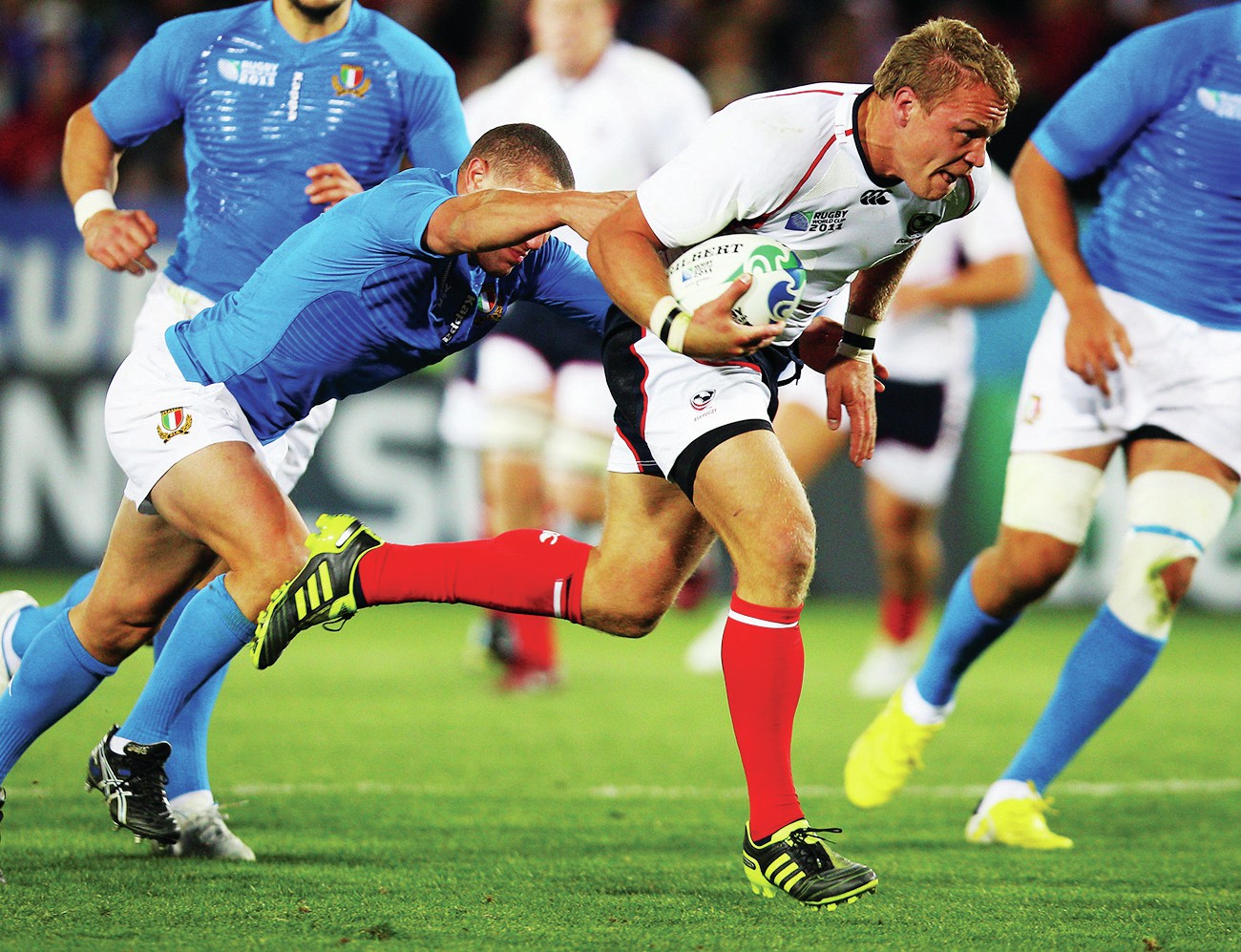Tackling was my strength, shame I couldn’t pass!

BEFORE the recent USA v Uruguay game I was honoured to be asked by coach Gary Gold to do the jersey presentation. Being in the team room with guys from the national team brought back some emotions and memories from my own time as a US Eagle.
I took a lot of pride in playing for the US and during my nine-year career I was lucky enough to get 53 caps and play in three Rugby World Cups, each with different outcomes. Being from a very small town in Iowa surrounded by farmland, I had no idea how big a sporting event the Rugby World Cup was – the third biggest in the world – until I started playing in 1999/00.
For the 2003 World Cup, I was awestruck and just happy to be included as I'd only won five caps at that point. But in ‘07 I was just hitting my peak years and playing the best rugby of my life so to only play in one match, against England in Lens, was very disappointing. I was suspended for four weeks for tip-tackling Olly Barkley and that was it, tournament over. I felt a bit aggrieved because there was no malicious intent from me, and Phil Vickery had tripped me when I was on a run to the try line and escaped without any sanction. It felt like one rule for tier one players and another for tier two guys.
Tackling was always a strength of my game, probably because of my wrestling background, but when I look back I wish someone had taught me how to pass properly from the get-go. At first, the onus was just on getting from A to B as directly as possible and then, when the need to expand my game arose, I had to rely on watching tapes of Super Rugby to see how it was done.
I know rugby was invented in England but New Zealand is the mecca of rugby so to play in the 2011 tournament was amazing. I'd gone there to play club rugby in North Harbour after the '03 World Cup so I'd had a taste of what an immersive rugby experience it is.
Players like Dan Lyle, Luke Gross and Dave Hodges had done a fantastic job paving the road for American players to play overseas. From university, I joined Amatori Catania – the only professional rugby club in Sicily – then Parma, then the Dragons, back to Parma, on to Ulster for a brief period and then Wasps, so I've done a lot of jumping around.
When I was in my first year in the Italian league, John Kiran came to watch one of the games and I was man of the match playing full-back. He asked if I was Italian qualified. He'd just become Italy head coach and was on a recruitment drive. I was flattered by the interest, of course, but at the same time told him I was proud to be an American and I'd already been capped.
I really enjoyed my time with the Dragons in Wales, that's another country where rugby is steeped in the culture. It was the first time I'd ever been recognised on nights out and stopped by people wanting to talk about the game and quoting stats. Ulster was also a pretty cool place to be, they were starting to renovate Underhill, and I liked Belfast as a place to live other than the fact it goes dark so quickly!
By 2012, I was starting to think about my exit strategy from playing and I had a chat with the then head coach Mike Tolkien before we played Romania on tour in 2012. My contract was up with Wasps and I thought I'd do the World Cup qualifiers in the summer then step away. But it ended a little earlier than expected when I ruptured all the lateral ligaments on my left ankle. I was playing flanker at the time because John Quill had been sent off. At least I bowed out with a try and a win.
After a bit of time away from the game, I went into coaching. I had a spell with Houston, did some High School coaching in Denver, plus a few years at the Air Force Academy as well as working with the Collegiate all-Americans for a while. Currently I'm doing the pathway High Performance academy that USA rugby set up, for 18-24 year-olds, introducing them to what a professional week looks like – nutrition, recovery, analysis and things like that. Oh, and also giving a few tips about how to pass!
– as told to Jon Newcombe